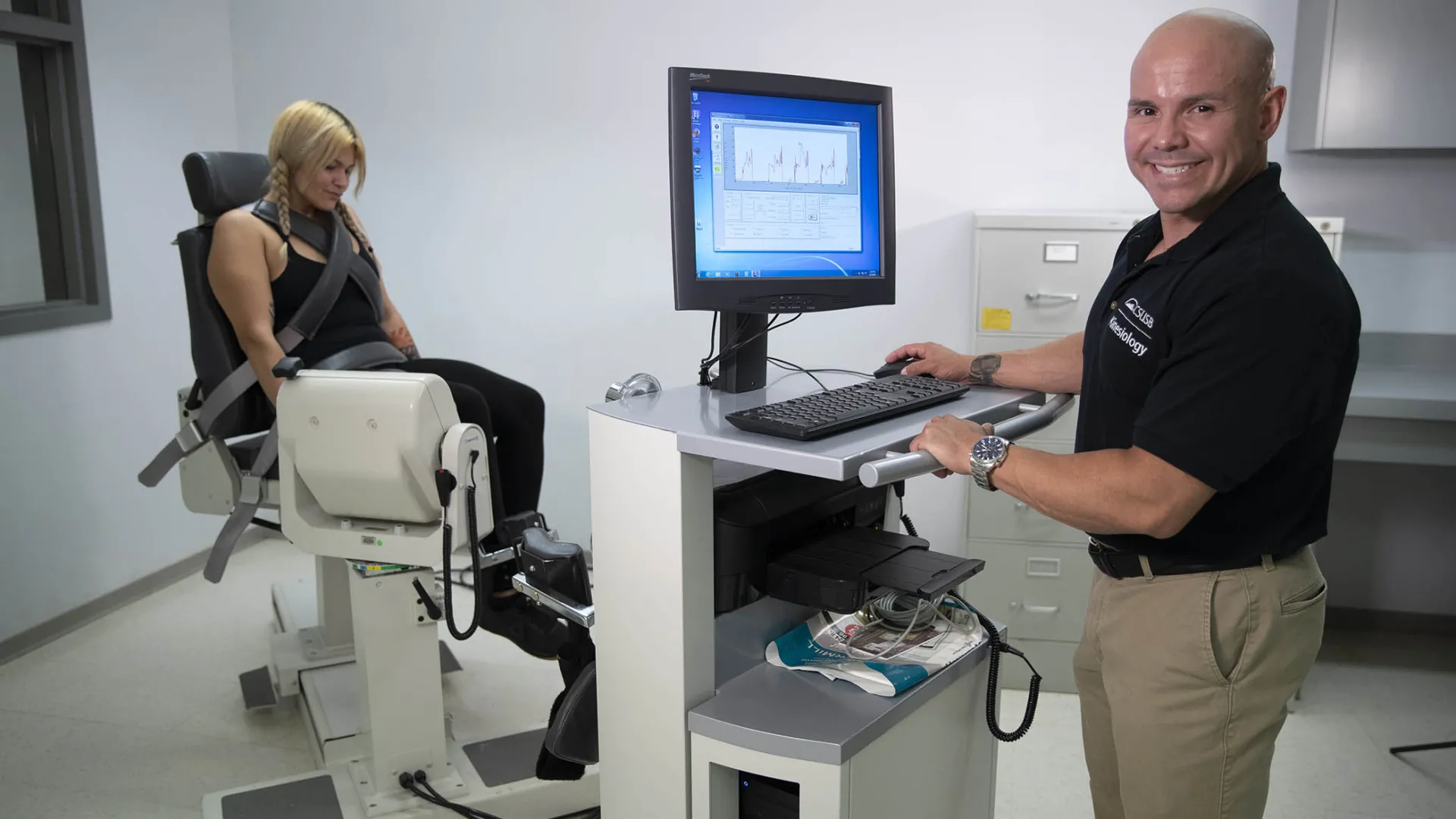Joe Gutierrez | Office of Strategic Communication | (909) 537-3007


The Hispanic Association of Colleges and Universities (HACU) has named Guillermo Escalante as a fellow for its fourth Leadership Academy, La Academia de Liderazgo, a one-year program to prepare the next generation of culturally diverse leaders for executive and senior-level positions in higher education.
Escalante, a professor in the Cal State San Bernardino Department of Kinesiology, is the first CSUSB faculty member to be named a fellow and is one of only 39 individuals selected from institutions throughout the U.S. to join the prestigious program.
Escalante has been a Dean’s Fellow in the College of Natural Sciences since 2020. He is one of the co-authors of the PATHS grant, which provides nearly $5 million in funding from the U.S. Department of Education to increase the number of Hispanic and low-income students who graduate with degrees in science, technology, engineering and mathematics (STEM) fields.
The Leadership Academy is designed to increase the number of talented individuals who aspire to leadership positions of Hispanic-Serving Institutions (HSIs). As of fall 2020, CSUSB’s Hispanic undergraduate full-time student enrollment of 66 percent was well above the HSI requirement of at least 25 percent.
The HACU program was developed in 2019 in response to the declining rate of Hispanic university presidents (from 4.5 percent in 2006 to 3.9 percent in 2016), despite the unprecedented growth of U.S. Hispanic college student enrollment. HACU statistics estimate that soon, one in five college students will be Hispanic, yet it is unlikely they will enroll in a college or university with a Hispanic president.
Academy fellows participate in an array of development activities designed to prepare them for leadership roles in higher education. More than a dozen nationally recognized current and emeriti presidents and senior-level administrators serve on the Academy faculty. Mentorship with a university president is a key component of the program, as is the development of a special project designed to have an impact at the fellow’s current institution.
Escalante said he looks forward to the cohort’s first in-person meeting at the HACU annual conference in October and to the opportunities inherent in the program.
“I want to continue to develop professionally as an administrator in higher education. Right now, I’m enjoying the dual role as a faculty member and as a Dean’s Fellow,” said Escalante. “I’m still training and understanding all of the duties required of higher education administration. At the same time, I still enjoy performing and presenting research, teaching and working with students, so I really have the best of both worlds.”
While Escalante has written nearly 100 articles in peer-reviewed journals or mainstream health and fitness publications and has delivered presentations at national and international conferences, he initially struggled with English as a child, and closely identifies with the challenges faced by CSUSB students, particularly those for whom English is a second language.
Born in Costa Rica, Escalante moved to the U.S. with his family when he was 9.
“I didn't come here knowing a lot of English. Like a lot of our students, Spanish was my first language,” he recalled. “There were struggles, there were some language barriers in reading and writing. I was able to overcome those challenges and eventually reading and writing became one of my strengths.”
While he doesn’t yet know what the focus of his HACU special project will be, Escalante believes it will address one or more of the challenges HSIs face.
“Some of our students come from a lower socioeconomic status and they are expected to be college-ready, but some are not. The challenge is meeting them where they are at,” he said. “What kind of resources can we offer them so that they can succeed and become graduates, rather than experience a sink-or-swim scenario? Sometimes students, particularly minority students and our first-generation students, feel like they’re alone and they’re really not. How can we make students aware of the existing resources that are available to help them succeed?”
Looking toward the future, Escalante says the HACU Leadership Academy will expand his perspective of the higher education landscape.
“I’ll be able to look at the administrative responsibilities through the higher education administrative, as opposed to just the faculty goggles,” he said. “When I’m ready to move into administration in a full-time position in the coming years and have more higher education administrative experience under my belt, I hope to be a competitive applicant for positions such as a dean, a provost, and eventually a president.”